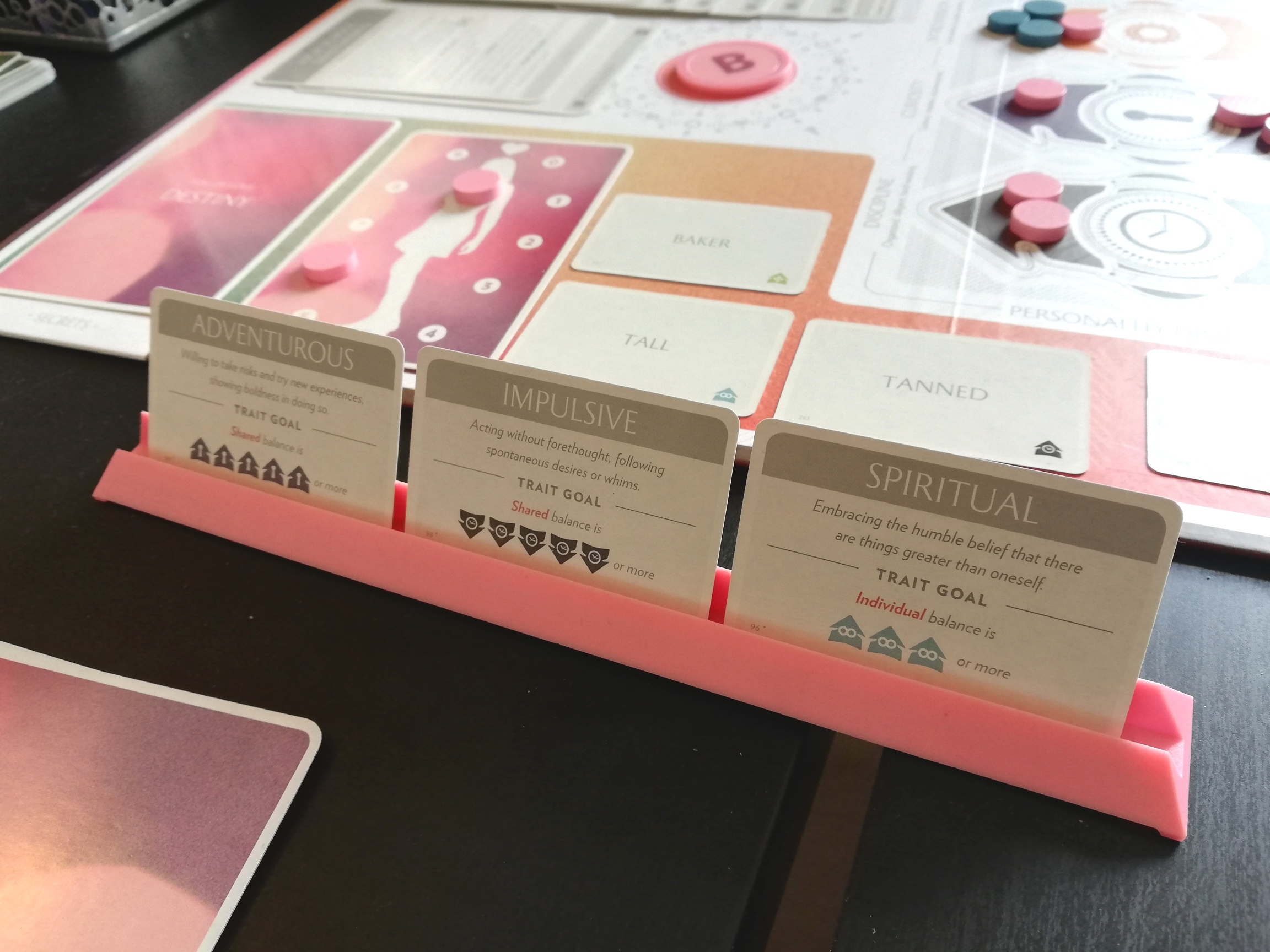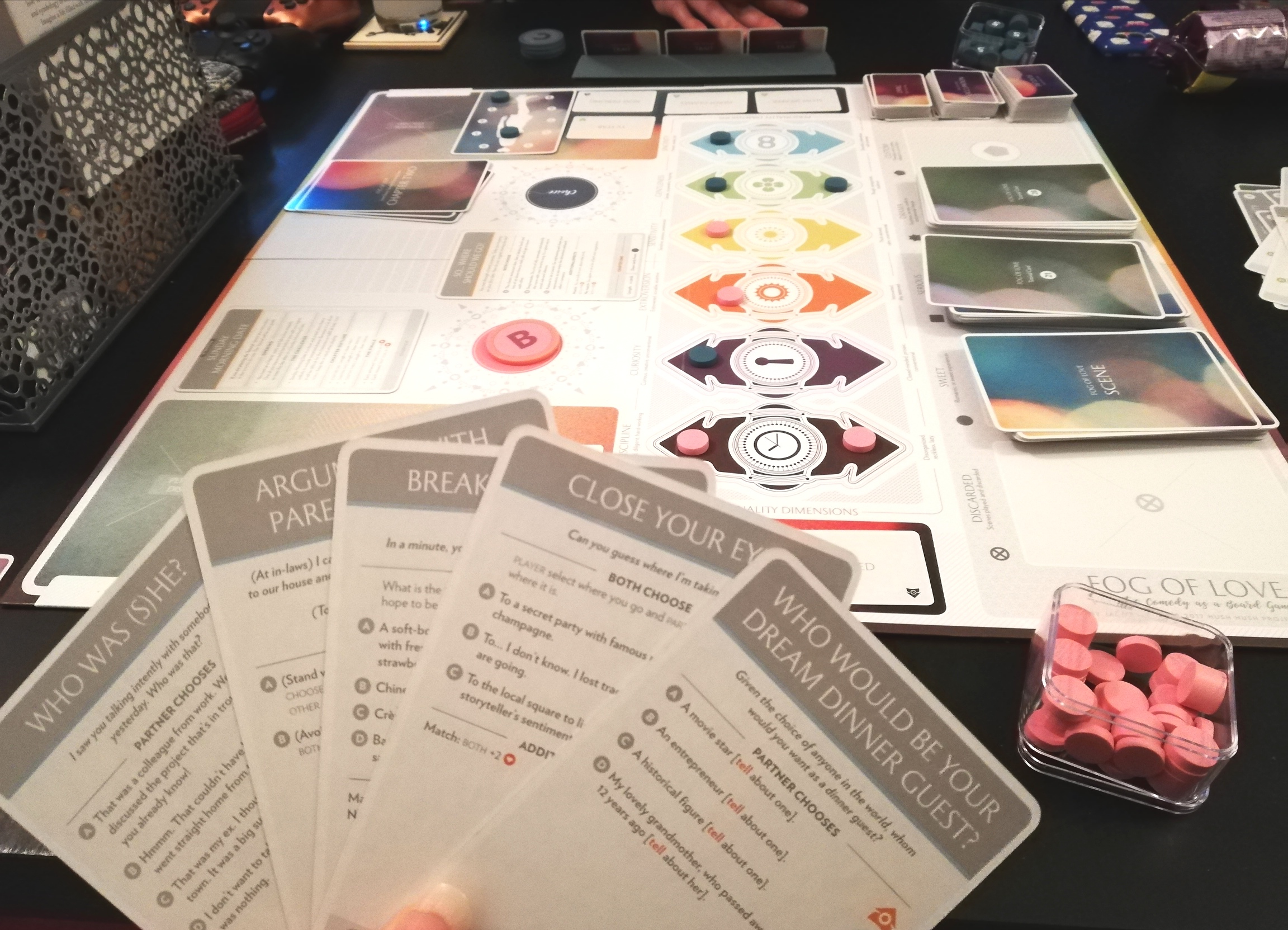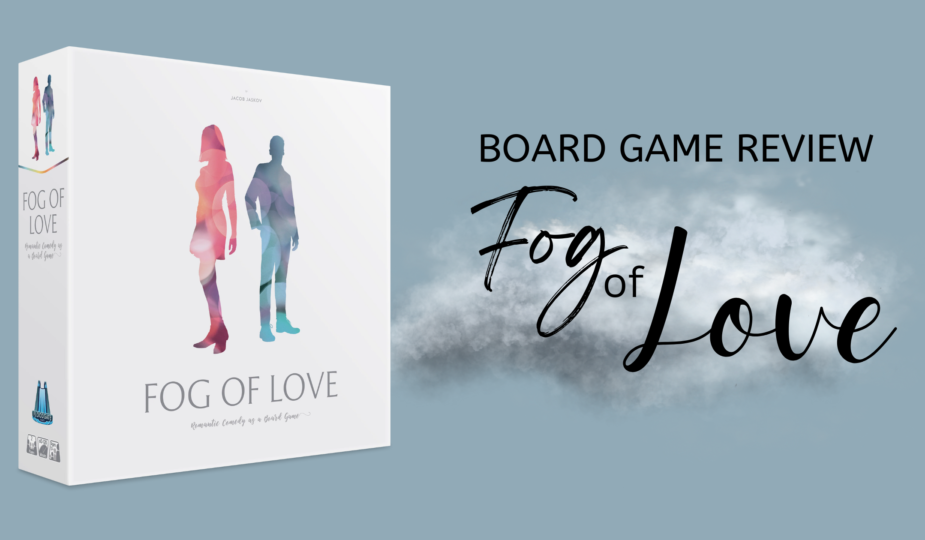Fog of Love is a two-player cooperative game that focuses on the relationship between two people. Traits, features and occupation build the foundations of these characters, but it is the chapters of their love story that bring them to life.
The game helpfully offers you a tutorial through your first playthrough, explaining the different obstacles as and when you reach them. It isn’t necessarily a complicated game (despite my wordy explanation), but understanding how your actions affect each other and how that plays into the end goal just makes more sense when someone talks you through it.

The game’s scoring system works by offering opportunities to vote on how your character reacts to certain situations, with matching votes between players often awarding bonus points to both parties. TL;DR: compatibility is important. But this is also a game of finding balance – sometimes harmony must be compromised in order to focus on the personal goals of each person. A victory is achieved when the couple meet their individual destinies, signifying that they are happy within the relationship. Though this isn’t always easy to obtain – much like love in the real world!
We played two games, the first of which was a breeze as we had two complementary personalities, and our characters felt very much in love. We ended on a high, just one little point away from both being very much satisfied with our lot in life.
The second game, without the gentle structure of the tutorial, was very different. We opened one of the expansion decks – High School Sweethearts – which saw us in a long term relationship that had started back in our teen years. I played Susie, a happy-go-lucky baker in a high-end cupcake shop in L.A.
My friend played Trent, a policeman of the LAPD, who I would learn was a strict and controlling man with conservative ideals, forever in conflict with my adventurous and impulsive nature. He would often scold me, and with my satisfaction in the relationship dropping so low that a win looked impossible, I was forced to compromise myself, switching out to more subservient traits that would in the long run give us a smoother ride.

In the end, Trent’s destiny was fulfilled, and he lived happily within the relationship. I ended the game unable to meet a single goal, with Susie’s character a shadow of her former self. Such a different experience from the two compatible personalities who had been so well-suited in the previous game.
The game is what you make it. To enjoy it to its full potential, you need to be prepared to do a little bit of roleplay. As there are cards that will prompt you for stories, and it adds an extra level to the game if you can get into the mindset of your character, think how they might think.
Sometimes I sacrificed strategy for the sake of progressing our personal story, because for me the immersion was the best part of the game!


